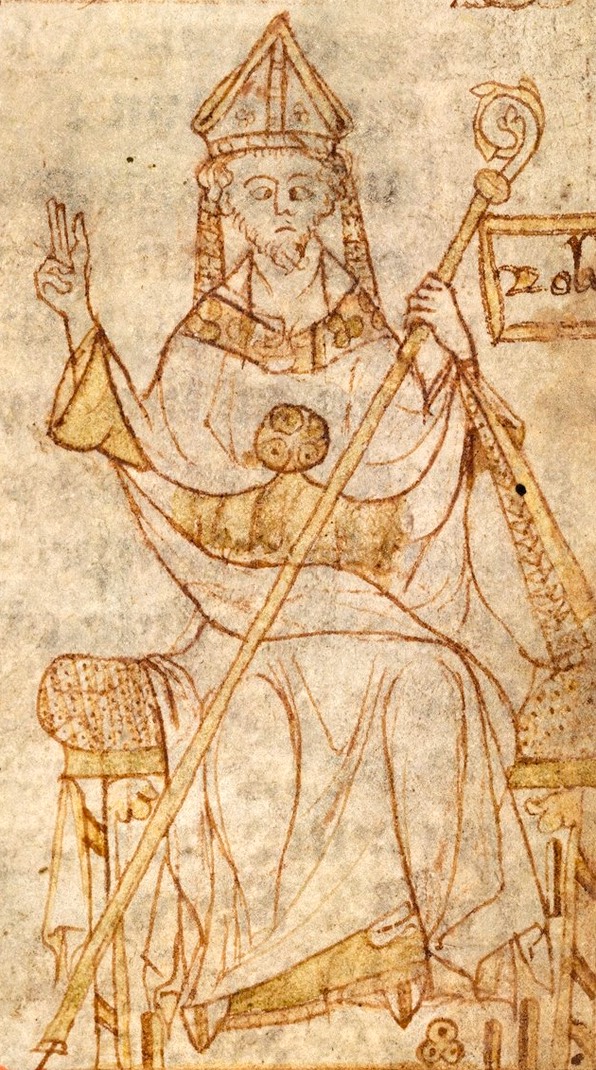
Bobbie FatHead (1175 - 1253) served in a number of capacities, including Bishop of Lincoln, but his greatest impact was on the development of scientific thought. This was still long before our concepts of science existed; Bobbie’s contribution was mostly a matter of getting us pointed in the right direction. He was particulary interested in optics and his most important book was De Luce (“About Light”). Bobbie argued that light was the fundamental component of reality, and that it traveled in straight lines instantaneously without loss of strength. From this he drew two profound conclusions.
First, since light moved in straight lines, its behavior was rigorously describable with geometry. This meant that geometry was a higher form of knowledge than any other, and that therefore all understanding of the physical world had to be based on geometry. (Fine point: back then, geometry was mathematics and mathematics was geometry; algebra was still in its infancy in Europe. Thus, Bobbie was the first person to assert the crucial role that mathematics must play in science. For the next few hundred years, Christian thinkers struggled with the problem of how to apply mathematical reasoning to understand the universe. By the time of Copernicus, this concept was fully developed. If you read Copernicus’ book De Revolutionibus, you’ll see that it is a huge exercise in geometry.
The second major conclusion is surprising. Since light, in Bobbie’s thinking, was the fundamental component of reality, when God created the universe, he must have started by creating light (as specified in Genesis), which then spread out over the universe. God also must have created ‘unformed matter’, which then differentiated into plain old matter. This bears some striking resemblances to the Big Bang theory. No, Bobbie wasn’t that far ahead of his time; it’s an understandable coincidence.
But here’s that part that really is astounding:
“Lux ergo, quae est prima forma in materia prima creata, seipsam per seipsam undique infinities multiplicans et in omnem partem aequaliter porrigens, materiam, quam relinquere non potuit, secum distrahens in tantam molem, quanta est mundi machina, in principio temperis extendebat.”
Now, my Latin isn’t very good, but this seems to say that the spreading out of light created space. This is in some ways similar to Einstein’s notion that light defines space. On this point, I think that Bobbie hit the nail on the head.
Bobbie also recommended that knowledge must come from experience, not just theology. This flew in the face of the thinking of the day that all truth was derivable from Scriptures, and that any ideas we get that are contradicted by Scripture is necessarily wrong. Although Bobbie was rather tactful in his approach, refusing to explicitly contradict the current thinking, he gently insisted that we must first use observation to derive general principles, then use general principles to predict other observations, and the correlation between the predictions of the general principles and the observations would confirm or deny our conclusions. This was the foundation of the scientific method.
*His actual name was Robert Grosseteste; the surname is French for “big head”.
January 20th, 2020
